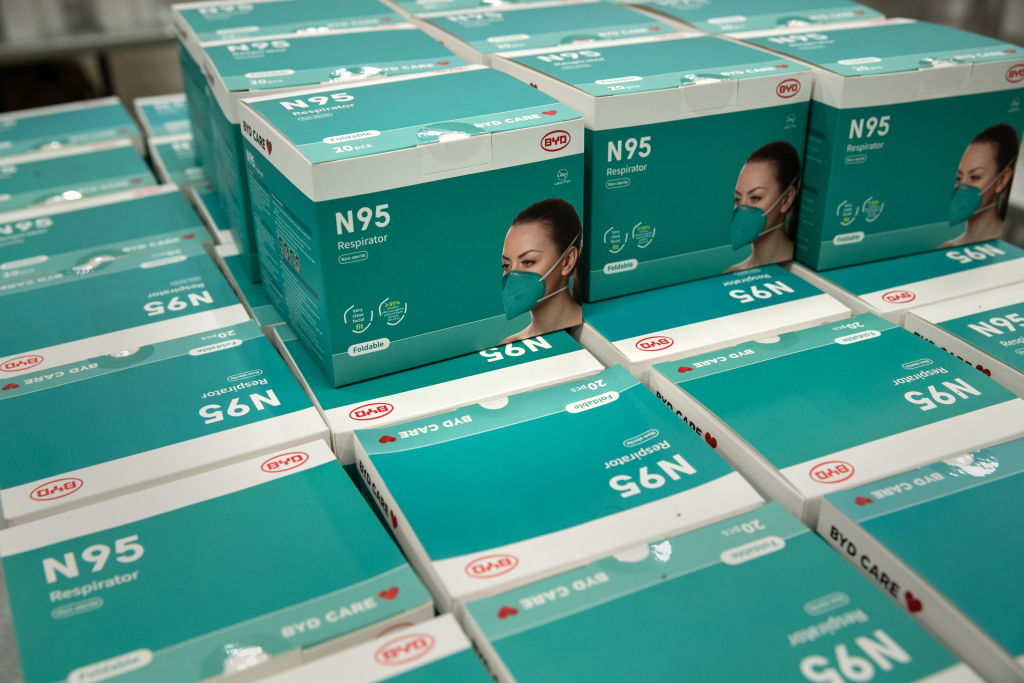4 surprising reasons scientists think asymptomatic coronavirus cases are so common


A free daily email with the biggest news stories of the day – and the best features from TheWeek.com
You are now subscribed
Your newsletter sign-up was successful
The coronavirus is a serious, often-deadly pathogen, yet the Centers for Disease Control and Prevention estimates 40 percent of all cases are asymptomatic. In some isolated outbreaks in prisons and food processing plants where thousands of people contracted COVID-19, as many as 94 percent of infected individuals presented no symptoms. The Washington Post spoke to experts and suggested four possible reasons as to why, though it's important to note the research in all cases is in early stages.
T-Cells: T-cells, a type of white blood cell that generally provides longer-lasting immunity than antibodies, may be the key to understanding resistance. One research group found that, among uninfected blood samples donated to a blood bank between 2015 and 2018, a "remarkable" 40 to 60 percent recognized the coronavirus, suggesting some people may have an immune response based on memory of other, less potent coronaviruses.
Vaccines: The Mayo Clinic is studying whether vaccines for other pathogens can protect against the virus, as has been proven in other situations. Seven types of vaccines given one, two, or five years in the past were found to be associated with a lower rate of coronavirus infection, particularly pneumonia and polio vaccines.
The Week
Escape your echo chamber. Get the facts behind the news, plus analysis from multiple perspectives.

Sign up for The Week's Free Newsletters
From our morning news briefing to a weekly Good News Newsletter, get the best of The Week delivered directly to your inbox.
From our morning news briefing to a weekly Good News Newsletter, get the best of The Week delivered directly to your inbox.
Allergies: Scientists have noted children with asthma and allergies surprisingly don't seem to be at high risk of developing serious cases of COVID-19. One theory is that those children have a reduced number of ACE2 receptors, the protein the virus latches onto before replicating inside the body. Without those receptors, the virus' chance of causing damage could decrease, meaning allergies may offer protection in this case.
Masks: Masks are discussed as a preventative measure, but they may contribute to more mild infections, as well. The most direct evidence of this theory is a comparison of two cruise ships. On the Diamond Princess, where masks weren't used, 47 percent of the positive cases were asymptomatic, whereas an Antarctic-bound Argentine cruise ship that had a similar outbreak, but provided masks to all passengers and crew, saw an 81 percent asymptomatic rate. Read more at The Washington Post.
A free daily email with the biggest news stories of the day – and the best features from TheWeek.com
Tim is a staff writer at The Week and has contributed to Bedford and Bowery and The New York Transatlantic. He is a graduate of Occidental College and NYU's journalism school. Tim enjoys writing about baseball, Europe, and extinct megafauna. He lives in New York City.
-
 At least 8 dead in California’s deadliest avalanche
At least 8 dead in California’s deadliest avalancheSpeed Read The avalanche near Lake Tahoe was the deadliest in modern California history and the worst in the US since 1981
-
 Political cartoons for February 19
Political cartoons for February 19Cartoons Thursday’s political cartoons include a suspicious package, a piece of the cake, and more
-
 The Gallivant: style and charm steps from Camber Sands
The Gallivant: style and charm steps from Camber SandsThe Week Recommends Nestled behind the dunes, this luxury hotel is a great place to hunker down and get cosy
-
 Blue Origin launches Mars probes in NASA debut
Blue Origin launches Mars probes in NASA debutSpeed Read The New Glenn rocket is carrying small twin spacecraft toward Mars as part of NASA’s Escapade mission
-
 Dinosaurs were thriving before asteroid, study finds
Dinosaurs were thriving before asteroid, study findsSpeed Read The dinosaurs would not have gone extinct if not for the asteroid
-
 SpaceX breaks Starship losing streak in 10th test
SpaceX breaks Starship losing streak in 10th testspeed read The Starship rocket's test flight was largely successful, deploying eight dummy satellites during its hour in space
-
 Rabbits with 'horns' sighted across Colorado
Rabbits with 'horns' sighted across Coloradospeed read These creatures are infected with the 'mostly harmless' Shope papilloma virus
-
 Lithium shows promise in Alzheimer's study
Lithium shows promise in Alzheimer's studySpeed Read Potential new treatments could use small amounts of the common metal
-
 Scientists discover cause of massive sea star die-off
Scientists discover cause of massive sea star die-offSpeed Read A bacteria related to cholera has been found responsible for the deaths of more than 5 billion sea stars
-
 'Thriving' ecosystem found 30,000 feet undersea
'Thriving' ecosystem found 30,000 feet underseaSpeed Read Researchers discovered communities of creatures living in frigid, pitch-black waters under high pressure
-
 New York plans first nuclear plant in 36 years
New York plans first nuclear plant in 36 yearsSpeed Read The plant, to be constructed somewhere in upstate New York, will produce enough energy to power a million homes
